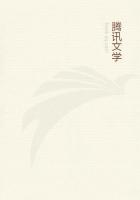and with all of them it may be a 'strong' emotion; but then there also come with it all sorts of strange bodily feelings and changes in the incoming sensibilities.I cannot see my way to affirming that the emotion is independent of these.I will concede, however, that if its independence is anywhere to be maintained, these theoretic raptures seem the place at which to begin the defence.THE GENESIS OF THE VARIOUS EMOTIONS.
On a former page (pp.453-4) I said that two questions, and only two, are important, if we regard the emotions as constituted by feelings due to the diffusive wave.
(1) What special diffusive effects do the various special objective and subjective experiences excite? and (2) How come they to excite them?
The works on physiognomy and expression are all of them attempts to answer question 1.As is but natural, the effects upon the face have received the most careful attention.The reader who wishes details additional to those given above on pp.443-7 is referred to the works mentioned in the note below.
As regards question 2, some little progress has of recent years been made in answering it.Two things are certain:
a.The facial muscles of expression are not given us simply for expression's sake;
b.Each muscle is not affected to some one emotion exclusively, as certain writers have thought.Some movements of expression can be accounted for as weakened repetitions of movements which formerly (when they were stronger) were of utility to the subject.Others are similarly weakened repetitions of movements which under other conditions were physiologically necessary effects.Of the latter reactions the respiratory disturbances in anger and fear might be taken as examples -- organic reminiscences, as it were, reverberations in imagination of the blowings of the man ****** a series of combative efforts, of the pantings of one in precipitate flight.
Such at least is a suggestion made by Mr.Spencer which has found approval.
And he also was the first, so far as I know, to suggest that other movements in anger and fear could be explained by the nascent excitation of formerly useful acts.
"To have in a slight degree," he says, "such psychical states as accompany the reception of wounds, and are experienced during flight, is to be in a state of what we call fear.And to have in a slight degree such psychical states as the processes of catching, killing, and eating imply, is to have the desires to catch, kill, and eat.That the propensities to the acts are nothing else than nascent excitations of the psychical state involved in the acts, is proved by the natural language of the propensities.
Fear, when strong, expresses itself in cries, in efforts to escape, in palpitations, in tremblings; and these are just the manifestations that go along with an actual suffering of the evil feared.The destructive passion is shown in a general tension of the muscular system, in gnashing of teeth and protrusion of the claws, in dilated eyes and nostrils, in growls; and these are weaker forms of the actions that accompany the killing of prey.
To such objective evidences every one can add subjective evidences.Every one can testify that the psychical state called fear consists of mental representations of certain painful results; and that the one called anger consists of mental representations of the actions and impressions which would occur while inflicting some kind of pain."
About fear I shall have more to say presently.Meanwhile the principle of revival in weakened form of reactions useful in more violent dealings with the object inspiring the emotion , has found many applications.
So slight a symptom as the snarl or sneer, the one-sided uncovering of the upper teeth, is accounted for by Darwin as a survival from the time when our ancestors had large canines, and unfleshed them (as dogs now do)
for attack.Similarly the raising of the eyebrows in outward attention, the opening of the mouth in astonishment, come, according to the same author, from the utility of these movements in extreme cases.The raising of the eyebrows goes with the opening of the eye for better vision; the opening of the mouth with the intensest listening, and with the rapid catching of the breath which precedes muscular effort.The distention of the nostrils in anger is interpreted by Spencer as an echo of the way in which our ancestors had to breathe when, during combat, their "mouth was filled up by a part of an antagonist's body that had been seized(!)." The trembling of fear is supposed by Mantegazza to be for the sake of warming the blood(!).The reddening of the face and neck is called by Wundt a compensatory arrangement for relieving the brain of the blood-pressure which the simultaneous excitement of the heart brings with it.The effusion of tears is explained both by this author and by Darwin to be a blood-withdrawing agency of a similar sort.The contraction of the muscles around the eyes, of which the primitive use is to protect those organs from being too much gorged with blood during the screaming fits of infancy, survives in ***** life in the shape of the frown, which instantly comes over the brow when anything difficult or displeasing presents itself either to thought or action.
"As the habit of contracting the brows has been followed by infants during innumerable generations, at the commencement of every crying or screaming fit," says Darwin, "it has become firmly associated with the incipient sense of something distressing or disagreeable.Hence, under similar circumstances, it would be apt to be continued during maturity, although never then developed, into a crying fit.Screaming or weeping begins to be voluntarily restrained at an early period of life, whereas frowning is hardly ever restrained at any age."















